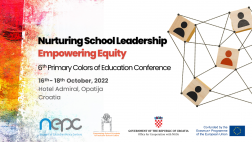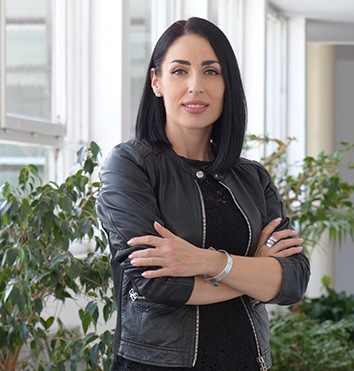6th Primary Colors of Education Conference

An inclusive approach to education should enable all students to access and fully participate in teaching and learning experiences and aims to ensure that all children and young people experience an education that enhances their learning and social relationships and prepares them for a quality adult life in the community. School leadership is influenced by the wider context in which the school operates and the characteristics of the local, national and global environment. It is a broad reflection on the question of how the school leaders, in collaboration with others, should act to make the school proactive and of good quality in the given context. School leaders across the OECD countries widely reported that they lacked the training needed to assume their posts (Schleicher, 2012; according to EASNIE 2018). Social inclusion is increasingly seen as a key challenge for educational leaders. For example, Leithwood et al (1999) suggest that with increasing diversity, schools will need to thrive on uncertainty, have a greater capacity for collective problem solving, and be able to respond to a wider range of students.
Therefore, new school leaders as well as the more experienced ones need access to ongoing, practice-oriented, reflective professional development programs (Schratz, 2013). Availability of professional development programs and resources specifically targeted at school leaders, support for the development of inclusive school cultures, as well as support for the school leaders’ meaningful engagement with school stakeholders and school communities are important pre-conditions for successful schools. Therefore, empowering school leaders for developing inclusive school culture is a promising policy approach for focusing the school and community improvement work on social justice. The conference is the final event of the HEAD project in an attempt to see how supporting leadership at the school and policy level may improve inclusion and increase social cohesion.
Within the conference we will explore school leaders’ professional development in regard to three main topics:
1. Social justice approaches that require transformation of the educational system /environment in a way that eliminates barriers that create and perpetuate inequities.
2. School culture – school’s norms, traditions, and rituals based on the values ‘School culture’ can be used to encompass all the attitudes, expected behaviors and values that impact how the school operates.
3. Inclusiveschool leadership – enables appropriate support to each student regardless of race, gender, ethnicity, language, disability, sexual orientation, family background, and/or family income
KEYNOTE SPEAKERS
Jasna Kovačević, University of Sarajevo

Jasna is an associate professor of leadership and management at School of Economics and Business, University of Sarajevo. Her research and teaching focuses on educational leadership and management, and ethics with particular emphasis on gender and leadership, developement of inclusive school cultures, social justice, diversity and inclusion. Her work appears in most prominent outlets in education research including Review of Educational Research, and core educational administration journals such as Journal of Educational Administration, School Effectiveness and School Improvement, Educational Management Administration and Leadership, and Journal of Educational Change. She worked on numerous projects supported or funded by local governments in Bosnia and Herzegovina, European Union, UK Government, Regional Cooperation Council, USAID, and OSCE Mission in the domain of education, human rights, gender equality and gender-based violence. Jasna has gained international experience as a visiting scholar at European universities, including Faculty of Business and Economics at Mendel University in Brno (Czech Republic) in the area of social responsibility and sustainability, and at University of Leipzig and Humboldt University in Berlin (Germany) in the areas of inclusive education systems and professional developement of teachers for social inclusion of marginalized student groups. Currently, she serves as a head of Gender Equality Council at University of Sarajevo. Jasna is a feminist, an activist and advocate for children and adults on autism spectrum.
Paul Gorski, Equity Literacy Institute (ELI)

Paul is the founder of the Equity Literacy Institute and EdChange. He has more than 20 years of experience helping educators, non-profit workers, and others strengthen their equity efforts. He has worked with educators in 48 states and a dozen countries. Paul has published more than 70 articles and has written, co-written, or co-edited twelve books on various aspects of educational equity including Reaching and Teaching Students in Poverty: Strategies for Erasing the Opportunity Gap and Case Studies on Diversity and Social Justice Education(with Seema Pothini). He is the author of the Multicultural Pavilion, an online compendium of free resources for educators. Paul earned a PhD in Educational Evaluation at the University of Virginia. He was a teacher educator at several universities for 15 years. He is also a published poet, a black belt in Tae Kwon Do, and the biggest fan of Buster, his cat.





[…] listopadu organiziraju međunarodnu konferenciju Nurturing School Leadership – Empowering Equity , koja će se održati u Opatiji, a za uspješno organiziranje konferencije potrebna im je […]